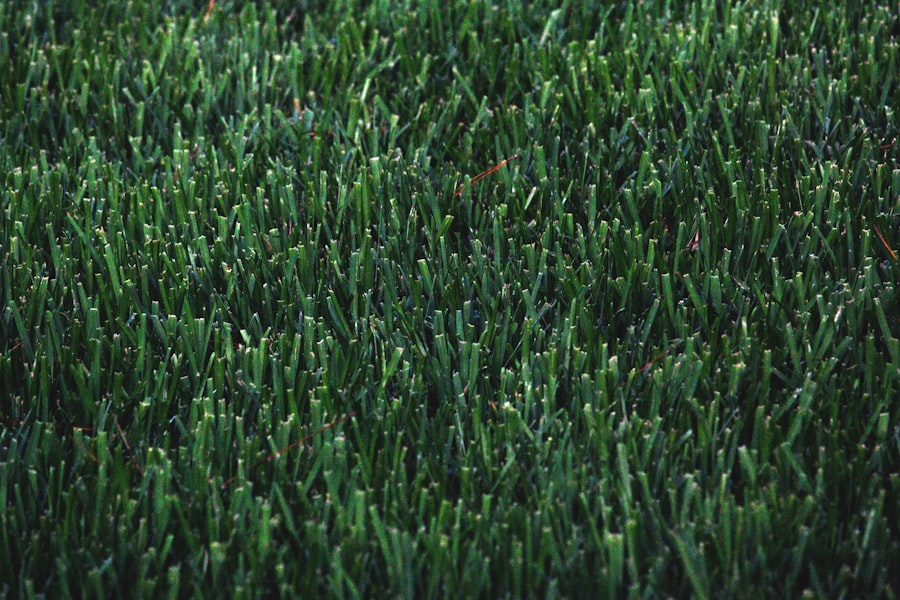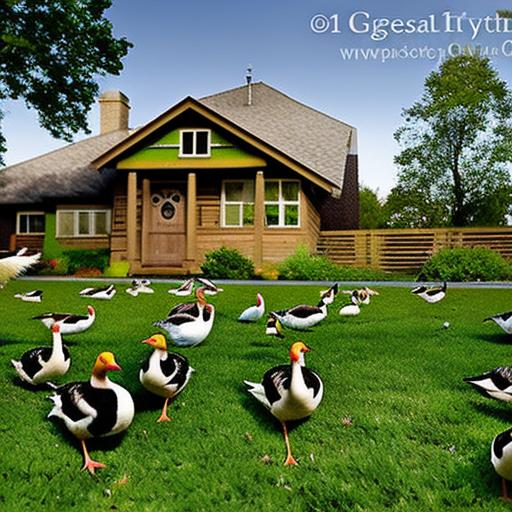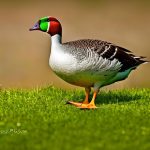Geese invading your lawn can be a frustrating and challenging problem to deal with. These large birds can cause significant damage to your property and create an unsightly mess. Whether you have a small backyard or a large estate, geese can quickly take over and make it their own. Understanding their behavior and habits is crucial in finding effective methods to keep them away.
Key Takeaways
- Geese can cause damage to your lawn and pose health risks to humans.
- Understanding geese behavior and habits can help in developing effective control methods.
- Natural deterrents like planting certain types of vegetation can help keep geese away.
- Physical barriers like fences and netting can be effective in keeping geese off your lawn.
- Professional services can provide long-term solutions for geese control.
Understanding Geese Behavior and Habits
Geese are social animals that often travel in flocks. They are known for their distinctive honking sound and their ability to fly long distances. Geese are also monogamous, meaning they mate for life and return to the same nesting grounds each year.
During the nesting season, which typically occurs in the spring, geese will search for suitable locations to build their nests. They prefer areas near water, such as ponds or lakes, where they can find food and have easy access to water for bathing and drinking.
Geese are herbivores and primarily feed on grass, plants, and grains. They have a voracious appetite and can quickly strip a lawn of its vegetation. Their constant grazing can lead to bare patches of soil and damage the root system of the grass.
The Negative Impact of Geese on Your Lawn
The presence of geese on your lawn can have several negative impacts. Firstly, their constant grazing can destroy the grass, leaving behind unsightly bare patches. This not only affects the aesthetic appeal of your property but also weakens the overall health of your lawn.
Additionally, geese leave behind large amounts of droppings, which can be both unsightly and unsanitary. Their droppings contain high levels of nitrogen, which can lead to an overgrowth of algae in bodies of water, causing water pollution.
Furthermore, geese can carry diseases such as avian influenza and salmonella, which can be transmitted to humans and other animals. Their droppings can also contain parasites and bacteria that can contaminate the soil and pose a health risk.
Effective Methods for Keeping Geese Away from Your Property
There are several methods you can employ to keep geese away from your property. These methods can be categorized into natural deterrents, physical barriers, scare tactics, and creating a hostile environment.
Natural Deterrents for Geese
One way to deter geese from your lawn is by planting certain types of vegetation that they find unappealing. Geese prefer short, tender grass, so planting taller grass varieties or native plants with rough textures can discourage them from grazing on your lawn.
Another natural deterrent is the use of decoys. Geese are territorial animals and will avoid areas where they see other geese. Placing decoys in your yard can trick geese into thinking that the area is already occupied, causing them to move on to another location.
Physical Barriers to Keep Geese Off Your Lawn

Physical barriers can be an effective way to keep geese off your lawn. Fencing or netting can be installed around the perimeter of your property to prevent geese from accessing your lawn. Make sure the fence is at least three feet high and extends underground to prevent geese from digging under it.
Another physical barrier option is the use of floating barriers in bodies of water near your property. These barriers create a visual deterrent and prevent geese from accessing the water, which is often a major attraction for them.
Scare Tactics to Keep Geese Away
Scare tactics can be an effective short-term solution for keeping geese away from your property. Noise makers such as air horns or whistles can startle geese and make them uncomfortable, causing them to leave the area.
Motion-activated sprinklers are another scare tactic that can be effective in deterring geese. When geese approach the sprinklers, the sudden burst of water will startle them and encourage them to find another location.
Creating a Hostile Environment for Geese
Creating a hostile environment for geese involves making your property unappealing to them. One way to do this is by removing any potential food sources. Geese are attracted to areas where they can find easy access to food, so removing bird feeders or cleaning up fallen fruits can help discourage them from staying on your property.
Using repellents can also make your lawn less attractive to geese. There are several commercial repellents available that can be sprayed on the grass to deter geese from grazing. These repellents often have a strong odor or taste that geese find unpleasant.
Professional Services for Geese Control
If you are unable to effectively manage the geese problem on your own, you may consider hiring a professional service for geese control. These services have specialized knowledge and experience in dealing with geese and can provide long-term solutions tailored to your specific needs.
Professional services may use a combination of methods such as habitat modification, harassment techniques, and population management to effectively control the geese population on your property. They can also provide ongoing maintenance and monitoring to ensure that the geese do not return.
Long-Term Strategies for Maintaining a Goose-Free Lawn
While implementing the above methods can help keep geese away from your lawn in the short term, it is important to have long-term strategies in place to maintain a goose-free lawn. Regular maintenance of your property, including mowing the grass and removing fallen leaves or debris, can help discourage geese from nesting or grazing on your lawn.
Monitoring for signs of geese activity, such as nests or droppings, is also crucial in identifying potential problems early on. By addressing any issues promptly, you can prevent the geese population from becoming established on your property.
In conclusion, dealing with geese invading your lawn can be a challenging task. However, by understanding their behavior and habits and implementing effective methods to keep them away, you can maintain a beautiful and goose-free lawn. Whether you choose to use natural deterrents, physical barriers, scare tactics, or create a hostile environment, it is important to have a long-term strategy in place to ensure the success of your efforts.
If you’re tired of geese invading your lawn, you might be interested in learning about effective ways to keep them at bay. One helpful resource is an article on Poultry Wizard titled “How to Keep Geese Off Your Lawn.” This informative piece provides practical tips and strategies for deterring geese from your property. From installing decoys and using repellents to creating physical barriers, this article offers a comprehensive guide to reclaiming your lawn from these pesky birds. For more information, check out the article here.
FAQs
What are some effective ways to keep geese off my lawn?
There are several effective ways to keep geese off your lawn, including using decoys, installing fencing, using repellents, and modifying the landscape.
What are some natural repellents that can be used to keep geese away?
Some natural repellents that can be used to keep geese away include planting certain types of vegetation, using noise deterrents, and using visual deterrents such as reflective tape or balloons.
Is it legal to harm or kill geese that are on my property?
In most cases, it is illegal to harm or kill geese that are on your property. It is important to check with your local wildlife agency to determine the laws in your area.
What are some common mistakes people make when trying to keep geese off their lawn?
Some common mistakes people make when trying to keep geese off their lawn include using ineffective deterrents, not being consistent with their efforts, and not addressing the root cause of the problem.
Why do geese like to graze on lawns?
Geese like to graze on lawns because they provide a source of food and water. Lawns also provide a safe and open space for geese to rest and socialize.
Meet Walter, the feathered-friend fanatic of Florida! Nestled in the sunshine state, Walter struts through life with his feathered companions, clucking his way to happiness. With a coop that’s fancier than a five-star hotel, he’s the Don Juan of the chicken world. When he’s not teaching his hens to do the cha-cha, you’ll find him in a heated debate with his prized rooster, Sir Clucks-a-Lot. Walter’s poultry passion is no yolk; he’s the sunny-side-up guy you never knew you needed in your flock of friends!







